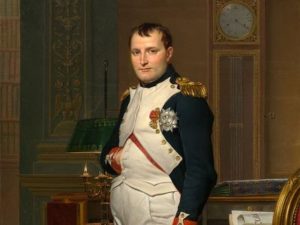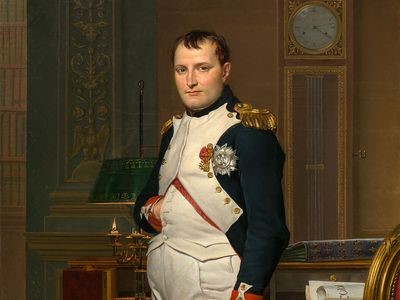PART II:
The slow and inconsistent rise of democracy in the West

The early connecting themes in eighteenth-century political discourse were commerce and morality—not democracy or social change. Democracy was neither talked of as a possibility, nor as a desire for improving the well-being and quality of people in civil society in Europe, much less in Africa, the Middle-east, India, Russia, or the Americas, at the time. In fact, democracy was a more or less a curse word until the very end of the century. Charles I—before he was beheaded, said, “‘nothing can more obstruct the long hoped peace of this Nation, than the illegal proceedings of them that presume from servants to become masters and labor to bring in democracy.” Democracy stood for the unordered anarchic chaos of antiquity that was to be left behind.
The invention of modern democracy began in the 1790s. To bring the minds of the present readers to the present day in the United States during its convulsive and perhaps existential 2024 elections requires a very brief timeline for evolution and devolution of democracy in the world up to 2024.
1789–1799: the French Revolution cancelled out the French monarchy with its divine right of kings. The Declaration of the Rights of Man and of the Citizen, based on the US Declaration of Independence, was adopted on August 26, 1789 declare that “Men are born and remain free and equal in rights” and proclaimed the universal character of human rights.
September, 1792: Universal male suffrage was established for the election of the National Convention in, but it was revoked by the Directory in 1795.
1794: Slavery was abolished in the French colonies by the National Convention on February 4, 1794, with Black people made equal to White people. “All men, without distinction of color, residing in the colonies are French citizens and will enjoy all the rights assured by the Constitution”.
Slavery was re-established by Napoleon in 1802 after his military coup in 1799. In 1804 the ever-ambitious Napoleon became the First Emperor of the French–a title deliberately chosen due to its populist sound as opposed to “Emperor of France.” On December 2, 1804, Napoleon Bonaparte was crowned Emperor of the French by Pope Pius VII. The 35-year-old Corsican actually took the crown out of the Pope’s hands and placed it on his own head.
In terms of metaphorical religious and political philosophy, a secular authority quite literally snatched a crown out of the hands of God and claimed the title on his own. It was a crowning of a populist dictator with an imperial title, one which was cheered by the rank and file of the time in France, as a triumph for “democratic” France. Napoleon had grasped a country that had just shaken its yoke of imperialism and installed it once more using different language for the same anti-democratic purposes.
With much of continental Europe subdued, Napoleon Bonaparte had control over the economics and trade of most of the continent. The worst affected were the British and the Russians–the two states on the periphery of Europe. The grander plan was to choke out the British from trade. The Russians–though they initially agreed to Napoleon’s plans of choking the British–began to violate the new Napoleonic trade system since it was decimating their economy. Doing so disrupted Napoleon’s grander economic strategy, and it eventually led him to commit the gravest mistake of his career: invading Russia in 1812.
Napoleon’s forces were defeated by the Russian winter and stoical determination of Russia not to surrender. This left Napoleon’s Grand Armee in a highly depleted state. Grasping the opportunity, the European powers formed the Sixth Coalition–Prussia, Russia, Britain, Austria, Sweden, Spain, Portugal, and some Italian Kingdoms–in 1813. That led to Napoleon’s defeat in Leipzig, Germany, from October 16-19, 1813, after six attempts.
Napoleon was exiled to the island of Elba, and the anti-democratic Bourbon Dynasty was restored to France’s throne one generation after it was overthrown. In 1815, Bonaparte escaped from Elba, returned to France, and took control of the country once more. However Europe met Napoleon again with a Seventh Coalition, resulting a final British delivery to Napoleon of final blow at the Battle of Waterloo in 1815.
Louis Philippe–a member of the more liberal Orléans branch of the House of Bourbon, proclaimed himself as Roi des Français [King of the French] rather than the Napoleonic “King of France”, emphasizing the popular origins of his reign. The king promised to follow the juste milieu [middle-of-the-road], avoiding the extremes of both the conservative supporters of Charles X and radicals on the left and without mentioning democracy.
The so-called “July Monarchy” was dominated by wealthy bourgeoisie and numerous former Napoleonic officials and followed conservative policies, especially under the influence (1840–48) of François Guizot from 1840-1848. The king promoted friendship with the United Kingdom and sponsored colonial expansion, notably the French conquest of Algeria. But by 1848–a year in which many European states had revolutions–the king’s popularity had collapsed, and he abdicated. In that same year, the establishment of universal male suffrage took place in France.


